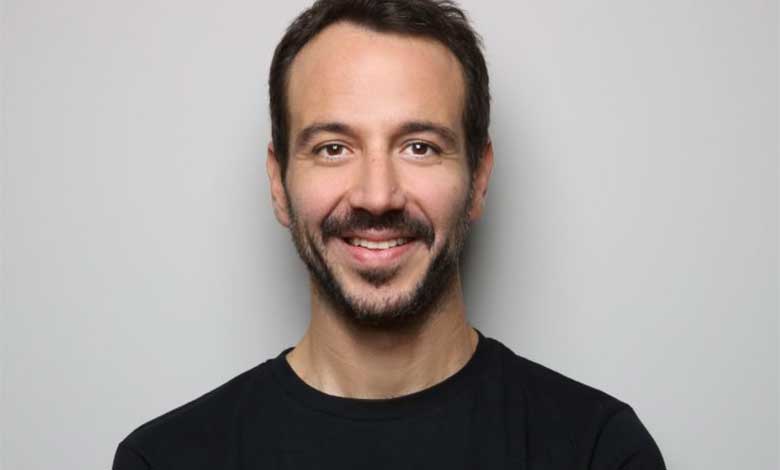
Nikos Manouselis is founder and CEO of Agroknow, the food safety intelligence company that extracts tailor-made data insights for the global supply chain. He is a Computer Engineer that holds a PhD on Agricultural Information Management. With more than 15 years of expertise in the intersection of data and technology for food and agriculture, Nikos is frequently consulting international organizations and food industry stakeholders on the way that big data and AI may be used to help solve critical challenges in the food supply chain. He is actively involved in local and global entrepreneurial networks, through his participation in the Entrepreneur’s Organization (EO).
Hello, Nikos, please tell us a little bit about does your company do and what is your role?
We are Agroknow, the food safety intelligence company that extracts tailor made data insights for the global supply chain. We collect, translate, and enrich global food safety data – ensuring that everyone has access to safe food.
Why do we need innovation in food safety and agriculture?
The world is facing an array of challenges when it comes to ensuring global food safety. Populations worldwide are growing and ageing, becoming more mobile and increasingly urbanized. In turn, this means that ensuring people have access not only to sufficient quantities of food, but also food of sufficient quality and guaranteed safety, becomes increasingly difficult. Innovation is a key aspect of the farming and the food production process. It is no secret that making intelligent use of big data is one of the most exciting – and important – evolutions in enterprise technology and this is also the case with agriculture and food.
A lot of people talk about Big Data, artificial intelligence, cloud computing and sensor technology in the farming and food industries. Are farmers and food scientists soon going to need a degree in computer science to be able to bring in the harvest and food production?
Transparent and effective information-sharing is critical to overcoming the modern challenges of the agri-food sector. From sensors automatically monitoring the levels of pollutants at urban vegetable plots, to tools and datasets offering new entrants to the food supply chain intuitive, easy-access visibility across the global food supply chain. In the future the supply chain will incorporate an array of new techniques for generating and sharing food safety data. BUT, data itself is not enough. In order to truly create actionable intelligence – for example reactive and predictive insights on the global supply chain – we must integrate human skills as well as the expertise of scientists and analysts. The combination of human skills and experiences with big data means using human insights to interpret and even sense-check the results thrown out by sophisticated AI algorithms. The explanation and identification of the cause that led to a result is something that big data analytics and machine learning are less effective. That’s where we need a human approach to enrich data insights, to create tailor-made intelligence to achieve greater visibility across the global food supply chain.
Can you give us more information about The Food Safety Market?
A European Commission funded project “The Food Safety Market” (TheFSM) aims to deliver an industrial data platform that will significantly boost the way that food certification takes place in Europe. TheFSM aspires to catalyse the digital evolution of the quite traditional but very data intensive business ecosystem that the global food certification market involves.
The agri-food certification sector spans across diverse segments of the agri-food supply chain, involving various stakeholders (from farmers and processors to certification bodies and consumers).
The main objective of TheFSM project is to create a transparent data-powered certification ecosystem for a safe food supply chain. With the global food industry relying on getting certified according to food safety standards, the exchange of data and the transparency across the supply chain is of paramount importance. TheFSM project will build upon state-of-art blockchain technologies to create an open and collaborative virtual environment that facilitates the exchange and connection of data between different food safety actors interested in sharing information that is critical to certification.
Moreover, through remote audits it aims to lower the cost of certification by fully digitizing food safety data transactions. The digitalization challenge is important for both corporations and SMEs, so TheFSM will enable automated, predictable, and secure food certification data exchange supporting the localized needs of EU food SMEs and enhancing the innovation capacity of EU certification bodies, IT service providers, foodtech and agtech companies.
How the agriculture will change in 2020?
Given the current COVID-19 outbreak there are already major changes happening in the agri-food industry. Someone can say that the pandemic is having tremendous effects on the companies that buy food and agriculture ingredients, materials and products to then cook, package or sell to consumers:
- Their supply chains have been disrupted, as the production cycles and transportation logistics faced significant delays or breakdowns.
- Their supplies have been in shortage, as less quantities have been produced or made available in the market.
- Their production, packaging, sales or service facilities have been locked down due to health outbreaks in their regions of operation.
This led to a drastic change to the way that food quality and safety experts in such companies do their very important job. They still need to perform their everyday hygiene and safety monitoring tasks, even while working from home. They can only rely on digital tools to monitor whether any food safety incidents have occurred in their supply chains. They need to perform fast and efficient supplier audits and facilities inspection using big data and digital software tools, from a distance. We also see major food safety schemes like BRC and GLOBALG.A.P. allowing for remote auditing paving the road for a more digital food safety certification process in 2020.











